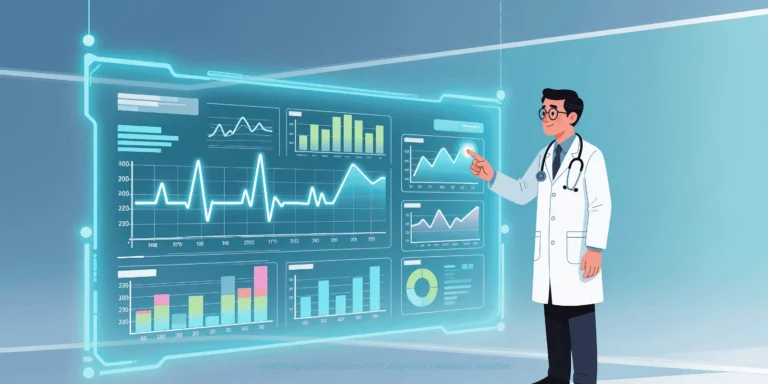I’ve written more antibiotic prescriptions than I can count during my 30 years as a physician. Looking back, I have to admit something that might surprise you: quite a few of those prescriptions weren’t needed.
I remember one particularly busy Friday afternoon when a mother brought in her 4-year-old with a runny nose and cough. She’d taken time off work, paid for childcare for her other kids, and driven 30 minutes to see me.
When I suggested that her son had a viral infection that wouldn’t respond to antibiotics, her face fell. “So you’re not going to give him anything?” she asked, clearly disappointed.
In that moment, tired after seeing patients non-stop since 7 AM, I did what too many doctors do – I wrote a prescription for amoxicillin that I knew wouldn’t help. I rationalized it as “just in case,” but the truth was simpler: it was easier than explaining why antibiotics weren’t appropriate.
That moment, multiplied by thousands of doctors and millions of patients, has led us to a serious problem.
The Antibiotic Resistance Crisis
Each year in the United States, at least 2.8 million people get infections from bacteria that are resistant to antibiotics, and more than 35,000 people die as a result. This isn’t a theoretical future problem – it’s happening now, and it’s getting worse.
Every time we use antibiotics when they’re not needed, we give bacteria another opportunity to develop resistance. It’s like training the enemy to defeat our best weapons.
The consequences are already severe:
- Common infections becoming untreatable
- Routine surgeries becoming increasingly risky
- More aggressive and expensive treatments needed
- Higher healthcare costs for everyone
As a doctor, I find this terrifying. And as the founder of ChatRx, I’m committed to doing something about it.
When You Shouldn’t Expect Antibiotics
One of the most important things patients can understand is when antibiotics won’t help. Here are the most common scenarios where antibiotics are often requested but not appropriate:
Viral Infections: This includes most colds, the flu, most sore throats, most coughs, and most ear infections in older children and adults. Viruses and bacteria are completely different organisms, and antibiotics only work on bacteria.
Mild Bacterial Infections That Resolve on Their Own: Not every bacterial infection requires antibiotics. Many mild infections will clear with your body’s natural defenses, and using antibiotics in these cases only increases resistance risk without providing benefits.
Preventive Use: Taking antibiotics “just in case” or to prevent infection (except in very specific medical situations) is almost never appropriate.
Fever: A fever by itself doesn’t indicate whether you need antibiotics. It’s your body’s natural response to infection – both viral and bacterial.
Viral vs. Bacterial: Understanding the Difference
“But how do I know if my infection is viral or bacterial?” This is the million-dollar question, and it’s not always easy to answer.
Some general guidelines:
- Most upper respiratory infections are viral (about 90%)
- Clear runny noses usually indicate viral infections
- Most sore throats are viral (only about 15% are strep)
- Coughs without other symptoms are rarely bacterial
Medical professionals use a combination of your symptoms, physical examination findings, and sometimes lab tests to make this determination. But even with medical training, it can be challenging. That’s why at ChatRx, we’ve developed sophisticated algorithms to help make this distinction as accurately as possible.
The Afternoon Prescription Problem
Here’s something you might not know: studies show that doctors are more likely to prescribe unnecessary antibiotics late in the day. As decision fatigue sets in, the easy “yes” becomes more tempting than the harder “no” that requires explanation.
That 4:45 PM patient is more likely to get antibiotics than the 8:15 AM patient with identical symptoms – not because they need them more, but because the prescribing physician had less mental energy to explain why they didn’t need them.
This isn’t an excuse; it’s a reality of human psychology that affects healthcare decisions every day. And it’s one of the problems we’re solving with technology.
How AI Helps Make Better Decisions
At ChatRx, we’ve built a system that doesn’t experience decision fatigue. Our AI-driven platform evaluates symptoms using the same clinical guidelines at 5 AM and 11 PM, providing consistent, evidence-based recommendations regardless of timing.
Our system is designed to:
- Distinguish between viral and bacterial infections using sophisticated clinical algorithms
- Provide clear explanations about why antibiotics are or aren’t recommended
- Offer appropriate non-antibiotic treatments for viral infections
- Identify the rare cases where immediate medical attention is needed
This isn’t about replacing human judgment – it’s about supporting better decisions with tools that aren’t subject to the same biases and limitations.
The Benefits of Avoiding Unnecessary Antibiotics
When you skip antibiotics for infections that don’t require them, you’re doing more than fighting resistance – you’re protecting your own health.
Antibiotics can cause:
- Digestive issues, including severe diarrhea
- Allergic reactions ranging from mild rashes to life-threatening responses
- Disruption of your beneficial gut bacteria, which may have long-term health consequences
- Increased risk of certain infections, including C. difficile, which can be life-threatening
Beyond these individual benefits, appropriate antibiotic use preserves these vital medications for when we truly need them – for serious bacterial infections that can be life-threatening without treatment.
Becoming an Antibiotic Steward
The good news is that patients and providers can work together to address this challenge. Here’s how you can be part of the solution:
- Don’t expect or demand antibiotics for every infection
- Ask your healthcare provider: “Is this bacterial or viral?”
- If prescribed antibiotics, ask: “Are these necessary, or could we wait and see?”
- If you do need antibiotics, take them exactly as prescribed
- Never use leftover antibiotics or share them with others
- Support healthcare technologies and policies that promote appropriate prescribing
At ChatRx, we’ve built a platform that empowers both patients and providers to make better decisions about antibiotic use. By combining medical expertise with AI technology, we can provide consistent, evidence-based care that reduces unnecessary prescriptions while ensuring patients get antibiotics when they truly need them.
After three decades as a physician, I’ve learned that the best care isn’t always about writing a prescription – sometimes it’s about explaining why a prescription isn’t needed. Technology can help us deliver that message consistently and clearly, benefiting individual patients and public health.
Be part of the solution to antibiotic resistance by joining our waitlist.We’re currently accepting early sign-ups as we prepare for our launch across Indiana, Michigan, and Illinois. By joining our waitlist now, you’ll be among the first to access our platform when we launch later this spring. You’ll also receive exclusive updates about our progress and special early-access benefits.






